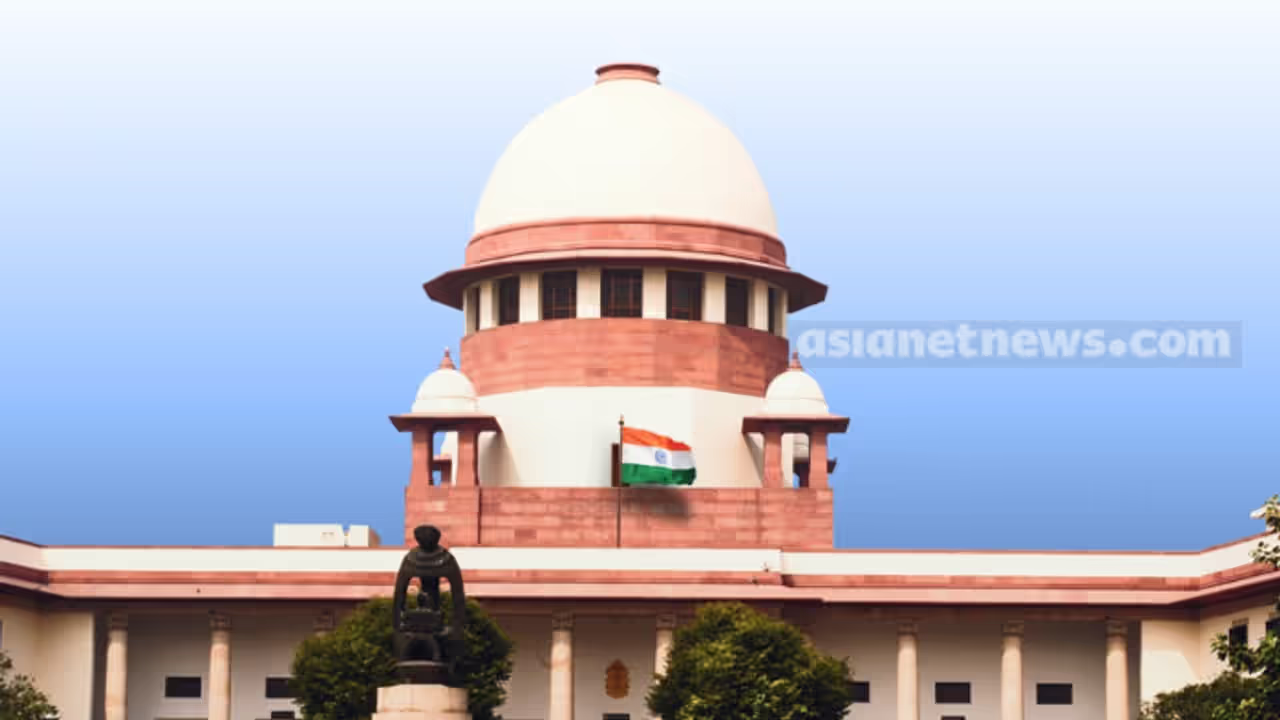The Supreme Court of India on Tuesday upheld the constitutional validity of the Uttar Pradesh Board of Madarsa Education Act, 2004, which regulates the administration of madrasas in the state.
In a huge relief to over 16,000 madrasas in Uttar Pradesh, the Supreme Court of India on Tuesday upheld the constitutional validity of the Uttar Pradesh Board of Madarsa Education Act, 2004, which regulates the administration of madrasas in the state. The decision reverses a prior judgment by the Allahabad High Court, which had struck down the Act, citing violations of secularism—a principle deemed part of the Constitution's basic structure.

The bench, led by Chief Justice DY Chandrachud and comprising Justices JB Pardiwala and Manoj Misra, ruled that laws can only be invalidated for violations of fundamental rights under Part III of the Constitution or due to legislative incompetence, but not for infringing upon the basic structure.
"Statute can be struck down only for violation of part III or legislative competence and not for violating basic structure. The High Court erred in holding that statute had to struck down for violating basic structure," the Supreme Court said.
The court emphasized that the primary aim of the Madarsa Act is to safeguard the rights of minorities, aligning with the state's positive obligations.
"The legislative scheme for the Act is to standardise level of education being prescribed in the madrasas. The Madarsa Act does not interfere with the day to day working of the madrasas. It is to protect the rights of minority in the State of Uttar Pradesh and is consistent with positive obligation of the State which ensures the students to pass out and earn a decent living," the Court held.
However, the Supreme Court set aside specific provisions of the Act that empowered the Madarsa Board to dictate courses and textbooks for higher education programs, such as the Kamil (postgraduate) and Fazil (junior research) degrees. This part of the Act was deemed unconstitutional due to its conflict with the University Grants Commission (UGC) Act.
Key highlights of SC's verdict:
- The Madarsa Act regulates education in madrasas and aligns with the state's obligation to support minority rights.
- The Act supports Article 21A, ensuring free and compulsory education while allowing minority institutions to impart education.
- It falls within the legislative competence of the state government.
- Provisions regarding higher education in the Madarsa Act were found unconstitutional due to their inconsistency with the UGC Act.
Background of the case and the High Court judgement:
In May, the Supreme Court temporarily stayed the Allahabad High Court's ruling that declared the Uttar Pradesh Board of Madarsa Education Act, 2004, unconstitutional.
Madrasas, or madarsas, are educational institutions where students can pursue Islamic studies along with other subjects. The Uttar Pradesh Board of Madarsa Education Act, 2004, defined madarsa education to encompass instruction in Arabic, Urdu, Persian, Islamic studies, philosophy, and other fields as determined by the Board.
The primary objective of the 2004 Act was to empower the Madarsa Education Board to oversee the functioning of madrasas. However, the Act faced challenges, primarily on the grounds that it violated the principle of secularism. Critics argued that it did not provide quality compulsory education up to the age of 14, as mandated by Article 21A of the Constitution of India, nor did it ensure universal and quality education for all children enrolled in madrasas, which is a requirement under Article 21.
The High Court sided with the petitioners, asserting that while the State has the authority to legislate on education at the school level, such education must adhere to secular principles. It stated, "The State has no power to create a Board for religious education or to establish a Board for school education specific to a particular religion and its associated philosophy. Such actions would violate the principles of secularism embedded in the Constitution." The High Court further noted that this also contravenes Article 14, which guarantees equal treatment by the State.
Additionally, the court found that the education provided under the Madarsa Act did not equate to the education offered in regular educational institutions recognized by the State Primary and High School and Intermediate Boards. It deemed the education imparted in madrasas neither 'quality' nor 'universal.' The High Court emphasized that while students of all other faiths receive education in modern subjects, the lack of similar quality education for madrasa students constituted a violation of both Article 21A and Article 21 of the Constitution.
Crucially, the High Court concluded that regulating higher education is a domain reserved for the Central government, and the State government lacks the authority to legislate in this area. Nevertheless, the Madarsa Act granted the Madarsa Board the power to prescribe curricula, textbooks, and instructional materials for various programs, including Alim (undergraduate), Kamil (postgraduate), and Fazil (junior research) courses. Consequently, the High Court ruled that the Act violated Article 246(1) of the Constitution, which grants Parliament exclusive legislative power over subjects enumerated in the Union list, prompting the appeal to the Supreme Court.
